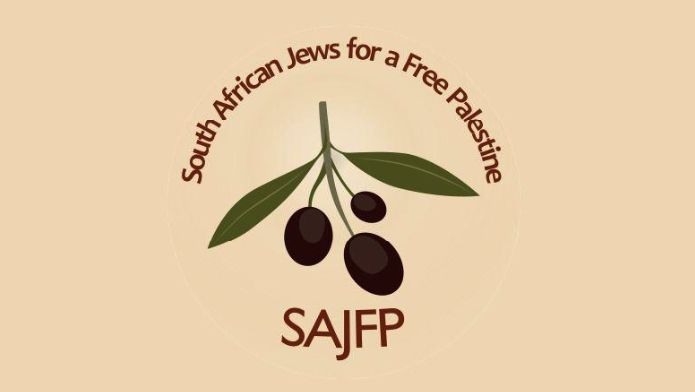As a boy growing up in South Africa one thing I vividly remember is the blue Jewish National Fund (JNF) charity boxes that seemed ever-present at shops in the northern suburbs of Johannesburg. By that time, this initiative must have been going for decades, because despite belonging to an earlier generation, Ronnie Kasrils remembers the same thing from his childhood. In his recent column on the wildfires that have spread across Israel in The Mail & Guardian: Fires ablaze in a stolen land: Israel’s trees planted over Palestinian villages are in flames, he recalls being “seduced” by the JNF “into providing pocket money to plant trees ostensibly to make the desert bloom”.
As Jews, we were all told a good story about the JNF, an organisation that planted trees in Israel. These trees were planted by brave Israelis who were transforming a “land with no people, for a people with no land” into a Jewish state, in the process turning the harsh desert landscape into beautiful forests and drying up malaria-infested swamps. So compelling was this tale that I was happy to put coins in JNF charity boxes as a child. And it seems Angie Segal, who wrote a reply to Kasril’s column, published on Politicsweb, either still believes these easily refuted myths today, or is paid to pretend to.
However, the truth about the JNF’s 120-year old history is available for anyone interested enough to look. It has been laid bare in Heidi Grunebaum’s 2013 documentary The Village Under the Forest, which exposed how the JNF’s forests have been used to erase evidence of Palestinian villages destroyed in the Nakba. Multiple sources show how it has played a pivotal role in the ethnic cleansing of Palestinians; The Global Atlas of Environmental Justice (EJAtlas) has written a detailed account of the JNF’s greenwashing – the deceptive use of eco-friendly PR and marketing spin to mislead the public about an organisation’s products or practices; the American Friends Service Committee, an organisation founded by Quakers dedicated to human rights, has detailed its long involvement in the dispossession of Palestinians. Examples include the organisation partnering with extremist settlers to evict Palestinian families from their homes in East Jerusalem, partnering with the Israel Land Authority to demolish Bedouin villages in the Negev, and illegally acquiring land in the occupied West Bank. Due to practices such as these, in a 2021 column in Israeli publication +972 Magazine, historian Dr. Yaara Benger Alaluf called for the JNF’s abolishment.
Segal attempts to counter these facts with myths. Without feeling the need to cite a single source, she hails the JNF’s “central” role in the “enterprise” of making the land “habitable”. Of course the Palestinians had clearly been inhabiting the land but the Zionist imagination has always disappeared them at will. This exercise of the imagination reflects actual ethnic cleansing – a process in which the JNF has played a very active role.
Segal’s attempt to take on Kasrils is primarily an attack on his character rather than any challenge to his arguments. According to Segal, Kasrils’ column was a “spiteful outburst of ideological bitterness”. He has, according to her, abandoned his “moral clarity” in writing what she describes as a “celebration of burning forests”.
It is unnecessary to resort to personal attacks in refuting the many myths that make up Segal’s argument. It is, however, helpful to understand who Segal is, and who Kasrils is. Ronnie Kasrils, as many may know, was a member of the ANC who played a significant role in both the struggle against apartheid and the establishment of a democratic South Africa in its wake. Segal – who was not yet born when Kasrils went into exile to evade the apartheid government – obtained a Bachelor of Arts in Marketing and Communications and now serves as the Head of Media at the South African Zionist Federation.
The Zionist Fed is an organisation that offers unconditional support – including fundraising – for the State of Israel, a country that according to the United Nations, Amnesty International, Human Rights Watch, Doctors Without Borders (MSF) and many of the world’s leading academic experts on the subject is currently commiting a genocide against the people of Gaza. While it is up to you the reader to draw your own conclusions, it is clear to me which of these two voices – the apartheid struggle icon or the Zionist propagandist – carries more “moral clarity”, to use Segal’s own term.
Segal’s argument appears to rest on a fairy tale version of history in which Zionists are absolved of all responsibility. “In 1947, the United Nations proposed a partition plan offering both Jews and Arabs a state. The Jews said ‘yes.’ The Arabs said ‘no’ and launched a war to destroy the new Jewish state at birth. That failure, not Zionist planning, led to the displacement of Arabs. The difference in approach was clear then, as it is now: Jews built institutions and infrastructure, while the Arab leadership chose destruction over coexistence.”
It is not even necessary to quote any anti-Zionists to deconstruct this mythologised version of events. Zionist historian Benny Morris does a good enough job of this in his account, 1948: A History of the First Arab-Israeli War. The 1947 UN Partition Plan allocated 55% of Palestine to Jews, who were a minority owning less than 7% of the land, while fragmenting the Arab state—a plan which was unjust and rejected by Palestinians for this reason. As a result, Zionist militias, through Plan Dalet (1948), expanded beyond UN borders and dispossessed more than 750,000 Palestinians from their land. This is what is known as the Nakba – which means “catastrophe” in Arabic – and Segal does not even acknowledge its existence. Those chased off their land during the Nakba have been barred from returning to their homes ever since.
Perhaps instead of rewriting history, Segal could have spent more effort on confronting Kasril’s most important point. She asserts that Kasrils “rage at eucalyptus trees imported from Europe is particularly laughable”. Presumably it is easier to laugh when it is not the remains of your native village that lies under the transplanted foliage. But Kasrils’ point, seemingly missed by Segal, is that the planting of trees, foreign to the region, has been a core aspect of the Zionist project of Westernising the land. These trees are totally unsuited to the environment and have threatened the biodiversity of the area and also led to water scarcity. The most palpable consequence of this choice though is raging fires as both pine and eucalyptus are highly flammable.
Segal has no clear rebuttal to this in her response, which instead relies on racist Zionist tropes: Israel as a true lover of life and the Palestinians, as essentially moribund. The idea of Israelis as those that create and Palestinians as those that destroy is laughable considering the well-documented destruction of Palestinian olive groves by Israeli settlers. Kasrils mentions in his column that nearly one million groves have been destroyed in this fashion since 1967, a fact ignored by Segal in her response.
But this racist narrative of the industrious Israelis and the destructive Palestinians takes on added absurdity in light of current events. Israel is currently conducting a full-scale genocide, a campaign of abject destruction, while Palestinians cling to life – enduring despite being forced to endure amputations without anaesthetic, starvation and ongoing bombardment.
Along with genocide, Israel is perpetrating ecocide. It should simply be common sense that destroying an entire region through carpet bombing is bad for nature, but if anyone needs any further convincing, they can read this article on the Women’s International League for Peace and Freedom (WILPF), this study in The Conversation, this report on Relief Web, or watch this video from the The Transnational Institute (TNI). “As a licensed environmental engineer, I have never seen the scale of environmental destruction that has occurred in Gaza,” writes Lesley Joseph in The Conversation. Despite all this horror, propagandists such as Segal continue to attempt to portray Israel as a constructive and thriving force for good.
It appears that none of Segal’s claims regarding the alleged eco-heroism of the early Zionists alongside the JNF, or regarding the claim of modern European Jews to another people’s country, stand up to scrutiny. But it is her attempt at claiming the moral high ground while standing in support of genocide, ecocide and ethnic cleansing that is truly troubling. No amount of mythologising over ecology, or history, could distract from that.

